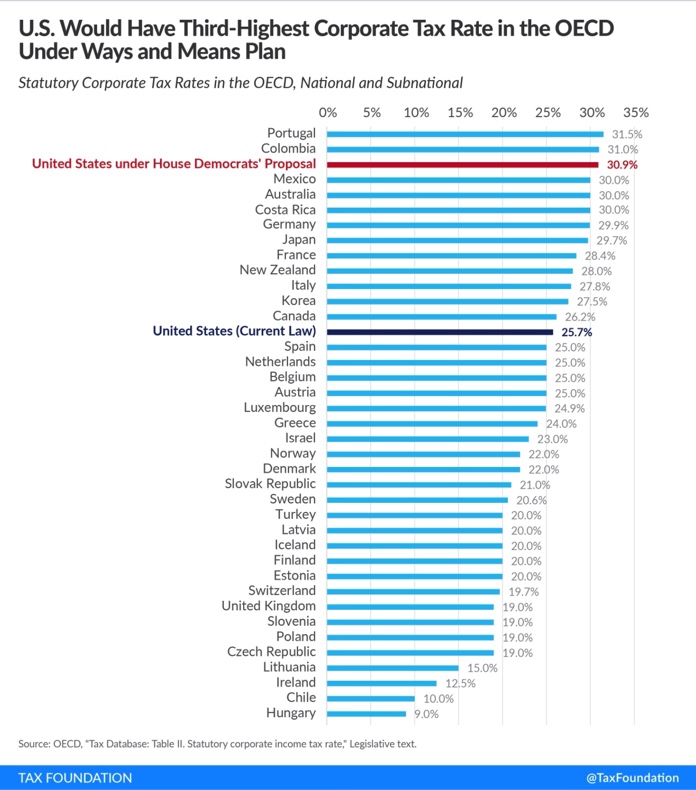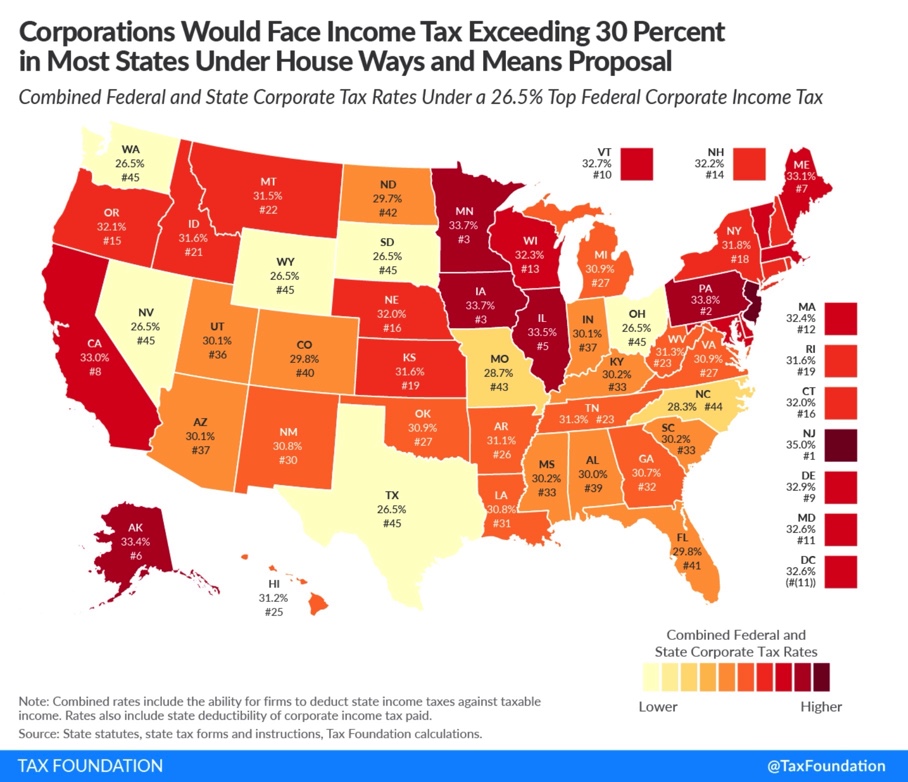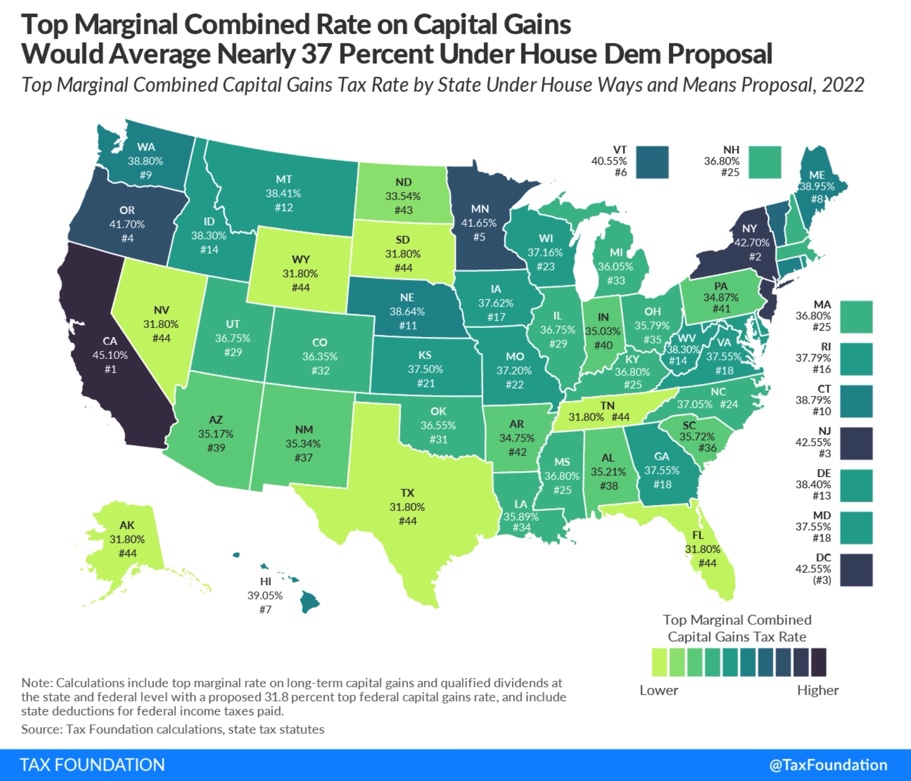How the Democrats tax proposal affects Minnesota
On Monday, Sept. 13, House Democrats released their tax proposal, which is supposed to pay for their $3.5 trillion spending plan. Among other things, the proposal raises the corporate tax from 21 percent to 26.5 percent. The Tax Foundation has calculated that the U.S. average corporate tax would reach 30.9 percent under the tax plan when state taxes are taken into consideration. This is the third-highest corporate income tax rate among OECD nations.

The plan also includes a proposal to raise the capital gains tax rate to 25 percent and add a surcharge of three percentage points for all incomes above $5 million. According to the Tax Foundation,
When including the net investment income tax of 3.8 percent under current law, the top marginal capital gains tax rate would reach 31.8 percent at the federal level.
That would be the highest federal tax rate on capital gains since the 1970s—and it would be above the generally estimated revenue-maximizing rate of 28 percent. The proposal should also be considered in the context of state-level capital gains taxes, which most states levy.
How the plan affects Minnesota
Compared to other states, Minnesota has some of the highest income tax rates –– a fact American Experiment has focused on heavily. So this new proposal will be adding to an already burdensome tax environment for Minnesota businesses.
According to the Tax Foundation, businesses will pay an average of 33.7 percent in corporate taxes in Minnesota –– the third-highest rate in the nation. Minnesota’s rate is higher than the OECD’s highest rate of 31.5 percent, which is enacted by Portugal.

When it comes to capital gains, Minnesota will have the fifth-highest tax rate in the nation at 41.65 percent –– just a little under the OECD’s highest of 42 percent levied by Denmark.

American Experiment’s Economy report showed that Minnesota’s economic growth as of late has lagged other states. One of the reasons for that is our high tax rates which make it hard for the state to attract investment, businesses, and high skilled workers.
If this tax proposal moves forward, this trend will likely worsen.